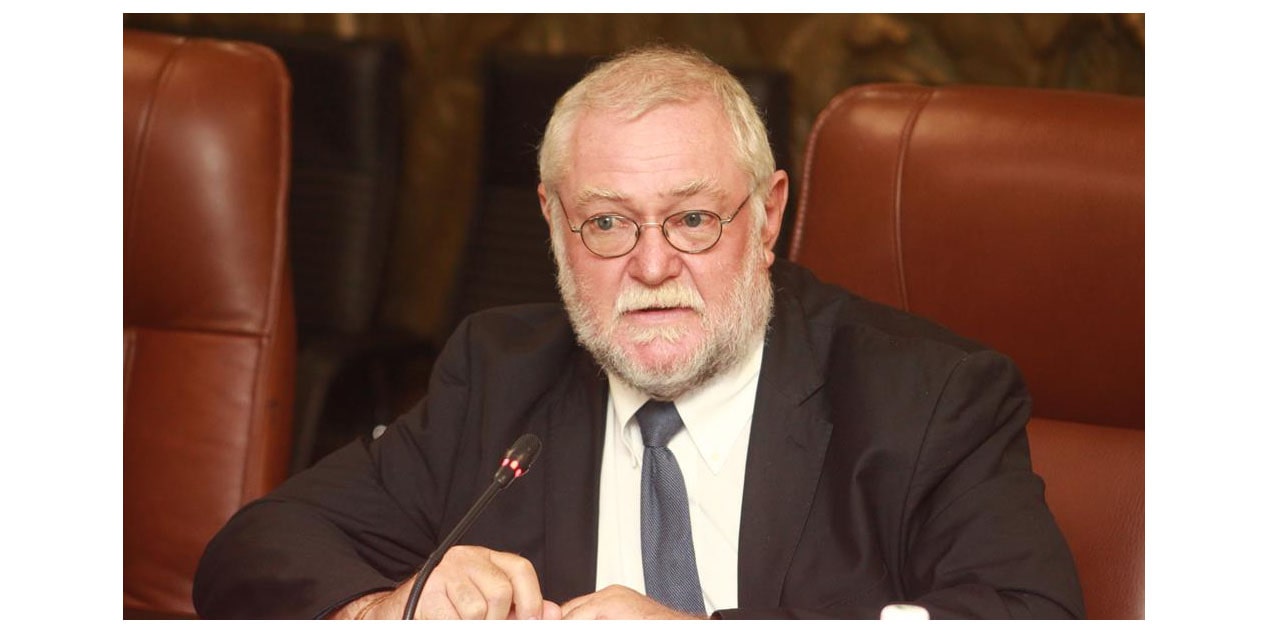Niël Terblanché
Calle Schlettwein, Namibia’s Minister of Agriculture, Water and Land Reform, called for a change in priority setting for funding to address the world’s water and sanitation challenges
He addressed the 10th World Water Forum, highlighting Africa’s commitment to water supply and sanitation amid severe drought challenges.
The minister stressed the continent’s alignment with continental and global agreements, such as the United Nations’ Sustainable Development Goal 6 (SDG 6), despite facing significant implementation challenges.
During the High-Level Panel discussion on Water Investment for Africa, Minister Schlettwein raised concerns about Namibia’s severe drought situation.
He said that the current water flow from rainfall into the country’s rivers, lakes, and reservoirs is at its lowest in the past century.
“This is indicative that surface as well as groundwater resources will become less reliable, with a negative impact on food security, health and hygiene, and prosperity. As predicted, this will be a recurring phenomenon, albeit more frequent and more severe in magnitude,” he said.
Referencing the latest World Water Development Report (2024) by the United Nations, Schlettwein highlighted that about 3.6 billion people globally will remain without proper sanitation and around 2.2 billion will not have access to clean water.
He pointed out that developing and middle-income countries are most affected by these challenges.
“Overall underdevelopment, debt overburdening, and resultant lack of fiscal space in developing and middle-income economies make required development of water and sanitation infrastructure in those countries more difficult, if not impossible,” he said.
Schlettwein called for a significant change in priority setting for funding to address the world’s water and sanitation challenges.
He suggested a transition in clean water and sanitation similar to the energy transition witnessed globally.
“To change these outrageous statistics, a significant change in priority setting for funding is required: Away from additional borrowing and debt towards more sustainable blending; away from war towards water and development; away from conflict towards managing common resources peacefully; away from harsh wealth disparities towards shared prosperity,” he stressed.
The 10th World Water Forum, held under the theme “Water for Shared Prosperity,” is taking place from May 20 to May 24, 2024.
Schlettwein is accompanied by the ministry’s Executive Director, Ndiyakupi Nghituwamata, and technical staff members.
Nghituwamata said that Namibia’s participation in the forum aims to strengthen water management and sharing with neighbouring countries.
“It remains imperative for Namibia to strengthen transboundary water cooperation since all the perennial rivers, which are Namibia’s main source of water, are shared with neighbouring countries,” she said.
Nghituwamata added that Namibian officials will participate in high-level panel discussions and interactive dialogues, and will host a side event titled “Transboundary Water Cooperation: Water for Peace, Regional Integration, and Prosperity – Namibia’s Experience” to showcase the benefits of transboundary water cooperation.
The ministry will also advocate for Namibia’s Water and Sanitation Security agenda on a global scale and form partnerships to expedite the achievement of the UN’s Sixth Sustainable Development Goal, which focuses on achieving clean water and sanitation for all.
“Lessons learned and shared during the forum will contribute solutions to Namibia’s water management challenges and help achieve shared prosperity,” she said.
While in Indonesia, officials from the ministry will also visit the University of Gadjah Mada (UGM), specifically the Faculty of Agriculture, to learn about setting a standard in seed production and agricultural development and to explore the latest technology available to the sector.
Nghituwamata added that the goal of the visit to the university will be to identify the areas for future collaboration.




